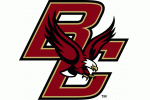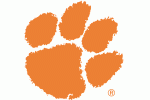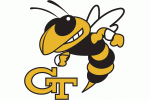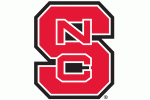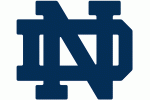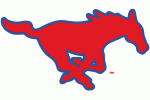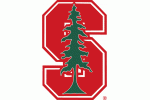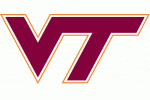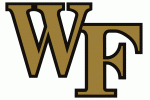It's time to pull it all together for one, big, comprehensive preview. One that goes even further than what we've had in the past. Big enough to need a table of contents...
-- Team Previews
-- Position unit rankings
-- Schedule rankings
-- Hot seat coaches
-- Top OOC games (non-rivalry)
-- Bowl predictions
-- Team Previews
- Boston College
- Clemson
- Duke
- FSU
- Georgia Tech
- Maryland
- Miami
- UNC
- NC State
- Pittsburgh
- Syracuse
- Virginia
- Virginia Tech
- Wake Forest
Much is based off of the positional rankings; most every prediction is derived from there. Time to get a move-on:
-- Quarterback rankings
1. Clemson - Tajh Boyd
2. North Carolina - Bryn Renner
3. Miami - Stephen Morris
4. Georgia Tech - Vad Lee
5. Duke - Anthony Boone
6. Virginia Tech - Logan Thomas
7. Boston College - Chase Rettig
8. Florida State - Jameis Winston
9. Wake Forest - Tanner Price
10. Pittsburgh - Tom Savage
11. Virginia - David Watford
12. NC State - Pete Thomas
13. Maryland - C.J. Brown
14. Syracuse - Drew Allen
This is as good a time to any to explain that while I may be awfully optimistic about David Watford and various other portions of the UVA roster as well, I had to look at UVA through the same as-neutral-as possible lens in which I looked at other teams as well. And the truth is, through that lens you see a guy who had a lousy 2011, is rumored to have improved, and sat out last season.
It's a little bit of a down-year in the conference for QBs, actually. Several good ones - Mike Glennon, E.J. Manuel, for example - have departed the scene, and thus we have to put a barely 50% passer 6th in the rankings. Returning players like Rettig and Price don't impress much either. All the teams below UVA have some uncertainty at quarterback with at least a fair chance that the guy listed won't be the starter, and the alternatives aren't a lot better. Actually, Pitt as well, but Savage has at least some pedigree. And the gap between Renner and Morris is large.
The other thing that might loom as strange is Vad Lee as high as fourth, but the fact is he's come across as a terrific fit for what GT is trying to do. The big wild card: Winston, who has room to make a big upward move, but is probably the single most unknown quantity of the whole gang.
-- Wide receiver/tight end rankings
1. Florida State - Rashad Greene, Kenny Shaw
2. NC State - Quintin Payton, Brian Underwood
3. Clemson - Sammy Watkins, Charone Peake
4. Maryland - Stefon Diggs, Deon Long
5. Boston College - Alex Amidon, Spiffy Evans
6. Duke - Jamison Crowder, Issac Blakeney
7. Miami - Phillip Dorsett, Allen Hurns
8. Virginia - Darius Jennings, Tim Smith
9. North Carolina - Quinshad Davis, Sean Tapley
10. Wake Forest - Michael Campanaro, Brandon Terry
11. Pittsburgh - Devin Street, Tyler Boyd
12. Virginia Tech - D.J. Coles, Demetri Knowles
13. Syracuse - Jarrod West, Adrian Flemming
14. Georgia Tech - Corey Dennis, Darren Waller
The best two receivers in the league will probably prove to be Clemson's Watkins and Maryland's Diggs - that's the conventional wisdom, and it makes sense. But the top two receiving units on this list are here because of their depth. FSU and NC State both return a ton of production. Just about everyone in the league that has a top-notch, national-level receiving talent also has depth questions behind them. We're talking about Maryland and Clemson, yes, but also teams like Wake and Pitt. Pitt has Devin Street, who is very good, and a nuclear disaster zone, hence their low ranking. Wake is not much better off. Duke and BC fit this mold as well, but both bring back 1,000-yard receivers and at least a smidge of depth.
UVA is actually in an interesting position, with more potential depth than most teams but low returning production. Very similar to UNC, actually, as both teams have a big weapon at tight end to complement the wide receivers (Jake McGee and Eric Ebron), and UVA gets the edge for a little extra depth from guys like E.J. Scott.
Thanks to Street, Pitt avoids what I'd consider the bottomest tier, where the resident teams bring back almost nothing from their successes of last year and are starting almost completely fresh. GT sits at the bottom owing to a stunning lack of depth that comes partly by design. Even for GT they're thin, though. I'd penalize them less if they had a big-time returning player, but they don't.
Overall, though, I'd call the competition for an all-ACC spot pretty tough. Street, Campanaro, Crowder, Diggs, Watkins, Amidon - all these guys could put together 1,000-yard seasons. Most have already. Deon Long is a potential major threat, as is Quinshad Davis. There could be 800- or 900-yard seasons relegated to honorable mention or even going voteless.
-- Running back rankings
1. Syracuse - Jerome Smith, Prince-Tyson Gulley
2. Florida State - James Wilder, Devonta Freeman
3. Miami - Duke Johnson
4. Virginia - Kevin Parks, Taquan Mizzell
5. North Carolina - A.J. Blue, Romar Morris
6. Duke - Jela Duncan, Juwan Thompson, Josh Snead
7. Georgia Tech - David Sims, Robert Godhigh, B.J. Bostic
8. Clemson - Roderick McDowell
9. Wake Forest - Josh Harris, DeAndre Martin
10. Boston College - Andre Williams
11. NC State - Shadrach Thornton, Tony Creecy
12. Virginia Tech - J.C. Coleman, Trey Edmunds
13. Pittsburgh - Isaac Bennett, Malcolm Crockett
14. Maryland - Brandon Ross, Albert Reid
Here is one area on offense where UVA looks to be in great shape compared to the conference. We have a returning 700-yard rusher and easily the best incoming freshman. And the truth is, most of the proven commodities in the league are proven to be sort of mediocre. NC State's tandem is the prime example; Shadrach Thornton and Tony Creecy are stunningly average. Players like Andre Williams, Josh Harris, and Jela Duncan are decent, but not going to capture the nation's imagination.
You have to like what Duke Johnson brings to the table, and Syracuse has easily the best pair of proven backs in the league; it's nigh-impossible to look at their 2012 production and conclude otherwise. FSU also looks to be in great shape. But if there's a nationally-relevant back in the ACC, it's just as likely to come from the ranks of the unknown as the known. UNC is a prime example of this, as is perhaps Clemson's McDowell. (Clemson is penalized, however, for having no depth.) Even J.C. Coleman could have a breakout season. But I don't look at ACC tailbacks this year and see a very strong collection of talent.
-- Offensive line rankings
1. Florida State - C Bryan Stork
2. Clemson - LT Brandon Thomas
3. Georgia Tech - C Jay Finch
4. Miami - LG Jon Feliciano
5. Duke - RT Perry Simmons
6. North Carolina - LT James Hurst
7. Syracuse - C Macky MacPherson
8. NC State - LG Duran Christophe
9. Virginia - LT Morgan Moses
10. Boston College - RT Ian White
11. Virginia Tech - C David Wang
12. Pittsburgh - LG Cory King
13. Maryland - C Sal Conaboy
14. Wake Forest - C Whit Barnes
There's a pretty big rich-poor divide at offensive line in the ACC this year. The top five are experienced all the way around and talented for the most part, with lots of senior leadership and at least decently playable depth. Holes start appearing at #6, and starting around #9 or #10, large and potentially offense-crippling questions begin to appear.
UVA would be quite a bit lower, frankly, if it weren't for Moses. We're talking about a team that's looking at starting a redshirt freshman walk-on at center and lost one of its best players to a hip injury. Through any glasses not colored blue and orange, that's a big, big issue. At 9th, UVA is both as low as I can place a team with talent like Moses, and as high as I can put a team with such major questions.
Below UVA, you've got BC whose line is just kind of average to below average without a standout player, but without a large pile of question marks - after them is when teams are getting awfully nervous about certain things. In VT's case it's injury and general lousiness. For Wake, it's having eight healthy linemen, most of whom are freshmen and none of whom are especially good. At Maryland, the usual factors of stability and experience are in decent shape, except that that was the single worst line in the whole league last year, and still would've been if Pitt and Cuse had been around.
However, the league's two flag-carriers are looking good here. I'd worry for the fate of the ACC if FSU and Clemson had foundational issues, but I can't help but say the league's top two teams also have the best two O-lines. And David Cutcliffe's relentless work at Duke to finally develop a cohesive, experienced offensive line that isn't a toxic waste dump has paid off nicely.
-- Offense cumulative rankings
1. Florida State
2. Clemson
3. Miami
4. North Carolina (tie)
4. Duke (tie)
6. Georgia Tech
7. Boston College (tie)
7. Virginia (tie)
9. NC State
10. Syracuse
11. Virginia Tech
12. Wake Forest
13. Maryland
14. Pittsburgh
So you can pretty easily tell that the top two is the top two. No surprise there. The next four teams, however, all reside in the Coastal Conference, five if you decide that UVA wins whatever tiebreaker you like against BC. Tough race there. UVA is actually not above eighth in any category but RB, where they're fourth, but a lack of complete disaster zones gives our Hoos a slightly surprising ranking. The same holds true, for that matter, for BC.
That middle four of BC through Syracuse is actually very, very close in terms of the point totals. Then there's a sizable drop to 11th. Could the Hokies be in for a rude surprise this year? Looks that way. The other slight surprise is that Miami is actually pretty close to Clemson. Closer to Clemson than they are to the Tobacco Roadies behind them.
-- Defensive line rankings
1. NC State - T.Y. McGill
2. Virginia Tech - James Gayle
3. Wake Forest - Nikita Whitlock
4. Florida State - Timmy Jernigan
5. North Carolina - Kareem Martin
6. Clemson - Grady Jarrett
7. Georgia Tech - Jeremiah Attaochu
8. Pittsburgh - Aaron Donald
9. Miami - Anthony Chickillo
10. Virginia - Brent Urban
11. Maryland - Darius Kilgo
12. Duke - Kenny Anunike
13. Boston College - Kaleb Ramsey
14. Syracuse - Jay Bromley
This is kinda scary. I think we have a pretty good defensive line going into this season (although having Chris Brathwaite would've been worth another rank upwards or two) but there are just some darn good defensive lines in the conference this year. The best and deepest is surprisingly NC State's. They will go seven or eight deep and not lose a lot, they have one of the best DTs in the conference (T.Y. McGill), and they can bring a consistent pass rush from both sides.
But playmakers abound. NC State might have the deepest unit, but you can rattle off at least half a dozen players, all on different teams, that are matchup nightmares. Nikita Whitlock, Kareem Martin, Jeremiah Attaochu, Aaron Donald, the list goes on. VT and FSU both run awfully deep and Wake's 3-4 boasts three fifth-year seniors on the line. Really, the top eight lines are all deep and talented. It starts to teeter a bit at 9 and 10. Miami has good-to-very-good players at end but is lousy at tackle, and UVA's depth is largely untested. The cliff comes at #11; the bottom four D-lines in the conference are really junky. Boston College absolutely sucks at generating a pass rush and it should tell you how bad Syracuse's line looks when I put them below the last-place team in the country in sacks.
-- Linebacker rankings
1. Clemson - Spencer Shuey
2. Boston College - Kevin Pierre-Louis
3. Syracuse - Dyshawn Davis
4. Florida State - Christian Jones
5. Maryland - Cole Farrand
6. Miami - Denzel Perryman
7. Wake Forest - Justin Jackson
8. Georgia Tech - Quayshawn Nealy
9. Virginia Tech - Jack Tyler
10. Pittsburgh - Shane Gordon
11. North Carolina - Tommy Heffernan
12. Virginia - Henry Coley
13. Duke - Kelby Brown
14. NC State - D.J. Green
This was the toughest section to rank. There's not a lot to separate most of the middle teams; in general, they can all be described by saying there is a good - usually not great - playmaker at the top of the list, some decent but unremarkable players, and some holes to fill. The top four teams are there because they can claim to return two high-quality players instead of just one. Depth can be a concern even there, however.
I was tempted to put UVA 13th below even Duke, on the basis that Duke has two starters they like (in a 4-2-5 base defense) and the two backups have 50+ tackles each, but then I figured - that's because they were last year's starters and not good enough to keep their jobs. That's basically the state of Duke's linebackers: proven to be bad. NC State's problems are even worse; the battles in camp have been largely between players who entirely lack experience other than some special teams plays. Just to spoil the surprise, I also rated the Pack's secondary as the worst in the conference, which gives them a very odd 1-14-14 set of defensive rankings.
The other potential oddity on the list is VT and Jack Tyler at 9th; Tyler is among the best LBs in the league, but Tech is otherwise so thin at linebacker they almost use the nickel defense as the base defense.
-- Secondary rankings
1. North Carolina - Tim Scott
2. Florida State - Lamarcus Joyner
3. Pittsburgh - Jason Hendricks
4. Virginia Tech - Kyle Fuller
5. Virginia - Demetrious Nicholson
6. Boston College - Sean Sylvia
7. Maryland - Dexter McDougle
8. Georgia Tech - Jemea Thomas
9. Syracuse - Keon Lyn
10. Wake Forest - Kevin Johnson
11. Clemson - Travis Blanks
12. Miami - Ladarius Gunter
13. Duke - Ross Cockrell
14. NC State - Juston Burris
The major caveat here is that Wake Forest's #10 ranking relies partly on them needing to use a freshman safety - a major problem for a defense and one that exposes a huge lack of depth. Consider them two spots higher if Anthony Wooding gets his waiver from the NCAA.
There are few spectacularly good players among ACC secondaries; Pitt's Jason Hendricks might immediately be the league's best safety. There aren't too many disaster areas, either, though. Ross Cockrell is among the league's best cornerbacks and it's his presence that moves Duke ahead of NC State at the bottom, but even the Pack have a few building blocks, even if it's mainly potential at this point.
UVA's ranking is earned with depth at corner, the same way VT's is. Both teams can claim to run a very solid three deep at corner, with the caveat that Tech does so with two true freshmen. Those true freshmen won a pretty legitimate camp competition, though, and Tech has more experience at safety than does UVA.
-- Defense cumulative rankings
1. Florida State
2. Virginia Tech
3. North Carolina
4. Clemson
5. Wake Forest
6. Boston College
7. Pittsburgh
8. Georgia Tech
9. Maryland
10. Syracuse
11. Miami
12. Virginia
13. NC State
14. Duke
This is why I warn against thinking VT's day in the sun is over. That sun might be setting, but it's not there yet; they have a very good defense still. The interesting thing here is that Clemson comes in fourth while FSU takes first in both categories. That makes the Atlantic Conference race interesting. Clemson was picked to win it by virtue of having a senior quarterback against FSU's freshman, and that's a very defensible position. But overall, FSU edges out the Tigers in both offense and defense, meaning....
-- Total rankings
1. Florida State
2. Clemson
3. North Carolina
4. Miami
5. Georgia Tech
6. Boston College
7. Virginia Tech
8. Virginia
9. Duke
10. Syracuse
11. NC State
12. Wake Forest
13. Pittsburgh (tie)
13. Maryland (tie)
....that they look like the conference's best team, and frankly, it's not close. Clemson is second-best, and well ahead of third-best North Carolina, which just became my pick for the Coastal Conference championship, ahead of Miami.
The surprise here: Boston College. The third-best team in the Atlantic? (???) Could be an indictment of the severe flaws of Atlantic teams. Overall, four of the five worst teams are Atlantic teams, with the caveat that one point is the difference between each team from 8 to 12. The fact that BC put a relatively biggish margin between them and the next teams down - better even than Tech thanks to the Hokies' awful-looking offense - gives me no choice but to go out on that limb and call the Eagles the ACC's surprise team this year. Even if they're not quite the 6th-best team in the conference, they play four really bad-looking teams in their division. The real shame is that we can't take BC's poor defensive line and trade it with NC State's outstanding one - that would create the league's best defense, at least in these rankings.
Split up by division, the rankings look like this:
Atlantic:
1. Florida State
2. Clemson
3. Boston College
4. Syracuse
5. NC State
6. Wake Forest
7. Maryland
Coastal:
1. North Carolina
2. Miami
3. Georgia Tech
4. Virginia Tech
5. Virginia
6. Duke
7. Pittsburgh
-- Schedule rankings
Now, in order to come to some final determinations, we have to rank the schedule difficulties. The main thing is within the conference, so let's do that and then rank OOC schedules in order to applaud teams for their ballsiness or mock them for their cowardice. This will simply be a point system using the rankings above, with a multiplier for home and road games. The team with the lowest point total has the hardest schedule, so a 0.75 multiplier applies to road games and a 1.25 multiplier for home games.
1. Pittsburgh
2. Virginia
3. Maryland
4. NC State
5. North Carolina
6. Boston College
7. Georgia Tech
8. Miami
9. Wake Forest
10. Duke
11. Syracuse
12. Clemson
13. Virginia Tech
14. Florida State
I think you know what conclusions I'm drawing from this.
Purely subjectively, here is a ranking of each team's OOC schedule:
1. Clemson
2. Virginia
3. Georgia Tech
4. Syracuse
5. Virginia Tech
6. Miami
7. Florida State
8. North Carolina
9. Boston College
10. Maryland
11. Pittsburgh
12. Wake Forest
13. Duke
14. NC State
Most teams are playing a BCS-level opponent. A few play two, and even a few more if you consider BYU a BCS-level team. (Both UVA and GT play them.) Cowardly Lion awards go to Duke and NC State for their pitiful schedules. Duke's actually is worse just team-by-team, but I gave them points for going on the road.
-- Hot seat coaches
First, the ones that are safe no matter what. These guys aren't going anywhere regardless of what happens, short of criminal behavior perpetrated by their own person, this season.
Steve Addazio - Boston College
Frank Beamer - VT
Paul Chryst - Pitt
David Cutcliffe - Duke
Dave Doeren - NC State
Larry Fedora - UNC
Scott Shafer - Syracuse
Most of these guys are on their first (Addazio, Doeren, Shafer) or second (Chryst, Fedora) season in their job. The newcomer schools aren't likely to fire a coach in their first year adjusting to the ACC, either. Beamer isn't to the Bobby Bowden point yet where the school would consider gently nudging him aside, and Cutcliffe has done too much for Duke for his job to be in danger any time soon.
Then we have:
Jimbo Fisher - FSU
Al Golden - Miami
Jim Grobe - Wake
Paul Johnson - GT
Mike London - UVA
Dabo Sweeney - Clemson
These are the guys who won't get fired after this season, but if the season doesn't go well, they'll be on notice next year. Sweeney and Fisher, by virtue of coaching where they coach, sort of live life perpetually in this state thanks to restless boosters who demand satisfaction, or at least, Orange Bowls. London isn't getting fired, but if the team has a disappointing year this year, the Damoclean sword will be affixed over his head in 2014. Grobe is probably the same way; Wake probably doesn't have the cash to just fire him whenever, and he's done really good things for that program, but needs to get out of the doldrums. As for Johnson, I think his job is pretty darn safe but not so much I'd put him so squarely in the top list. He's not a program miracle worker like Cutcliffe or Beamer and he's been around a while. Golden is similar; as long as Miami is doing sort of alright in moving through their turbulent times, he'll be around, but he can't have a major blown gasket, either.
That leaves the only real hot-seat coach in the league:
Randy Edsall - Maryland
And it's not like they'll be around for us to give a **** if he gets canned.
-- Top games
These are the OOC games most worth watching, leaving out rivalry games because they happen every year (chronologically ordered):
North Carolina at South Carolina: Battle of the Carolinas, which you wonder why it doesn't take place more often. (Probably because South Carolina feels the same way FSU does: we play one really good OOC rival every year, so why strain to play another decent game?)
Clemson vs. Georgia: This actually is kind of a rivalry game, but it doesn't go down all the time. And it's a great chance for the ACC to get an SEC scalp.
Syracuse vs. Penn State: The Cuse also plays Northwestern in the Big Ten, but this is probably more interesting if for no other reason than to see if PSU is starting to feel the scholarship sanctions yet.
Virginia Tech vs. Alabama: This is the same as our Oregon game - there's an outside chance VT is good enough to pull off a surprise of some kind, but more likely it'll just be a curbstomping.
Virginia vs. Brigham Young: Really, our chance to see if UVA can be a little bit of an ACC surprise.
Miami vs. Florida: I'm not counting this as a rivalry game either, since these teams refuse to play it most of the time. If Miami is as good as the media believes, though, it could be a good one, and a rare chance to watch these two instate occupants.
Virginia vs. Oregon: See VT vs. Alabama. However, there's this: Bama and UO are basically the marquee-est teams in the country right now. If Alabama wipes the field with Tech, and we can keep it even remotely close against Oregon, you instantly have the ability to talk to recruits about how the on-field results are proof positive of the turning of the tide in the state. (Particularly if we can actually back it up for once on Thanksgiving weekend.)
Georgia Tech at Brigham Young: BYU brought a serious no-huddle OC on board this year, and the contrast between that and GT's triple-option should be fun.
-- Bowl predictions
(Can I just go off on a small tangent here? The new ACC website is stupid as fuck. It is incredibly eager to tell me that Luke Kuechly "shined" in the NFL preseason, and has no information whatever on actual informational things, like, oh, I dunno, the current bowl lineup, or historical statistics. Not even, like, 2011 statistics. And the news archive is totally gone. Nice work on that, morons.)
Anyway, the part you've been waiting for. No thanks to the ACC itself.
ACC CG: Florida State over North Carolina
Orange Bowl: Florida State
Peach Bowl: Clemson - as long as its opponent is not UGA or South Carolina
RA Bowl: Miami - due to proximity, and as long as they're eligible
Sun Bowl: North Carolina
Tire Bowl: Georgia Tech
Music City Bowl: Virginia Tech
Independence Bowl: NC State
Military Bowl: Virginia - because I have to
The Hunger Bowl in San Fran also has ACC ties, as long as the Pac-12 or BYU can't fill a spot, but they probably will. That's eight bowl eligible teams, and I'll add Boston College and Duke to the rolls. There'll probably be a bowl or two unable to fill their quota from their contracted conferences, so I'm not worried about the ACC's ability to place all its teams. Staying home: Syracuse, Pitt, Maryland, Wake.


